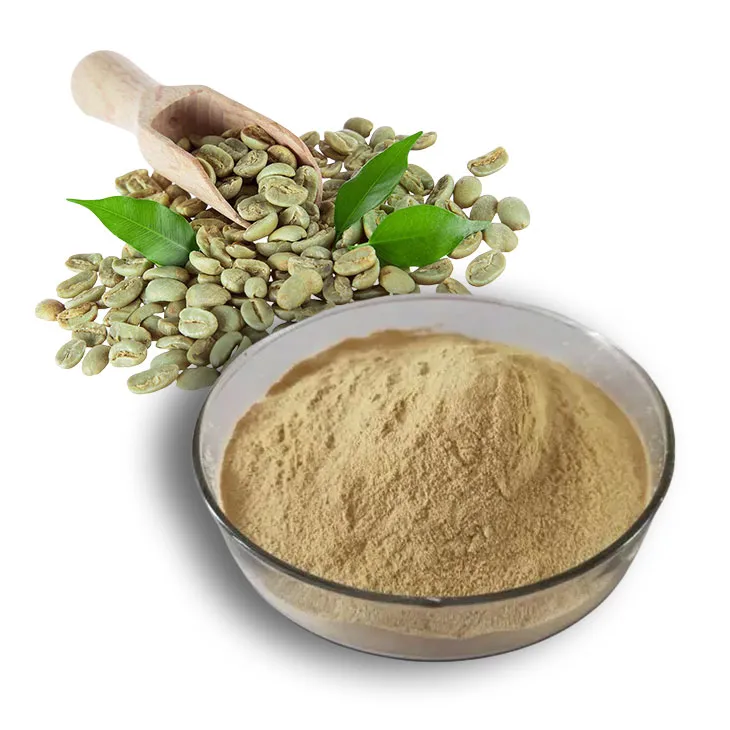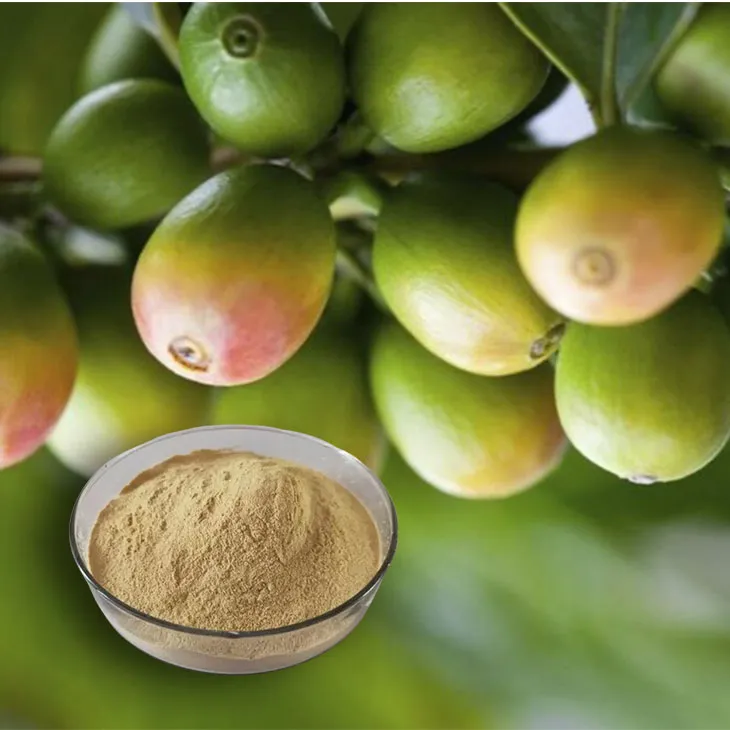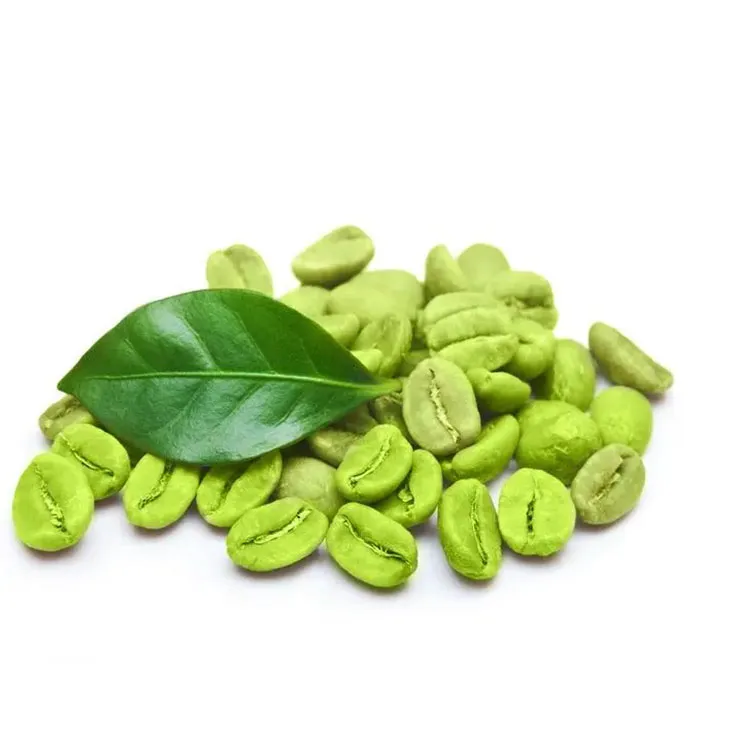- 0086-571-85302990
- sales@greenskybio.com
The Best Green Coffee Bean Extract in 2024.
2024-11-28

Introduction
Green coffee bean Extract has been gaining popularity in recent years due to its potential health benefits and unique flavor profile. As we enter 2024, the market for Green coffee bean Extracts is more diverse than ever. In this in - depth article, we will explore various aspects such as extraction methods, purity levels, and flavor profiles to determine which extracts are leading the way this year.

Extraction Methods
Solvent - Based Extraction
Solvent - based extraction is one of the most common methods used to obtain Green coffee bean Extract. In this process, solvents such as ethyl acetate or ethanol are used to dissolve the active compounds from the coffee beans. One advantage of this method is its high efficiency in extracting a wide range of compounds. However, it also has some drawbacks. For example, there is a risk of solvent residue remaining in the final product, which may pose potential health risks if not properly removed. Manufacturers need to ensure strict quality control to minimize this risk.
Supercritical CO₂ Extraction
Supercritical CO₂ extraction is considered a more advanced and "cleaner" method. In this process, carbon dioxide is used in its supercritical state, which has properties between a gas and a liquid. This method offers several benefits. It can selectively extract the desired compounds while leaving behind unwanted substances. Moreover, since CO₂ is a gas at normal conditions, it can be easily removed from the final product, leaving no solvent residue. This results in a purer green coffee bean extract with a higher quality. However, the equipment required for supercritical CO₂ extraction is more expensive, which may lead to a higher cost for the end - product.

Purity Levels
Purity levels play a crucial role in determining the quality of green coffee bean extract. High - purity extracts are generally more desirable as they contain a higher concentration of the active compounds.
Testing for Purity
Manufacturers use various methods to test the purity of their green coffee bean extracts. One common method is high - performance liquid chromatography (HPLC). HPLC can accurately separate and quantify the different compounds present in the extract, allowing manufacturers to ensure that the product meets the desired purity standards. Another method is gas chromatography - mass spectrometry (GC - MS), which is particularly useful for analyzing volatile compounds in the extract.
Impurities to Watch Out For
There are several impurities that can be present in green coffee bean extracts. One of the main ones is mycotoxins, which are produced by fungi that may contaminate the coffee beans. Mycotoxins can have harmful effects on human health, so it is essential to ensure that the extract is free from them. Another impurity to be aware of is heavy metals, such as lead, mercury, and cadmium. These can enter the coffee beans through environmental contamination and need to be removed or kept at very low levels in the extract.

Flavor Profiles
The flavor profile of green coffee bean extract is a complex combination of various factors, including the origin of the coffee beans, the roasting process (even though green coffee beans are unroasted, the potential flavor after roasting can influence the extract), and the extraction method.
Origin - Related Flavors
Coffee beans from different regions have distinct flavor characteristics. For example, coffee beans from South America, such as those from Brazil or Colombia, often have a more balanced and mild flavor. They may have notes of nuts, chocolate, and a mild acidity. On the other hand, coffee beans from Africa, like those from Ethiopia or Kenya, can be more fruity and floral. They may have flavors reminiscent of berries, citrus fruits, and have a higher acidity. These origin - related flavors can be transferred to the green coffee bean extract, although in a more subdued form.
Roasting Potential Influence
Although green coffee beans are unroasted, the potential flavor development during roasting can impact the flavor of the extract. Beans with a higher potential for a rich, complex roast may result in an extract with more depth and complexity. For example, beans that are known to develop strong caramel and smoky flavors during roasting may contribute to an extract with a more intense and unique flavor profile.
Extraction - Method - Induced Flavors
The extraction method can also introduce or modify flavors in the green coffee bean extract. Solvent - based extraction may sometimes introduce a slightly "chemical" note if the solvent removal process is not perfect. In contrast, supercritical CO₂ extraction tends to preserve the natural flavors of the coffee beans more effectively, resulting in a cleaner and purer flavor in the extract.
Top Green Coffee Bean Extracts in 2024
Based on the above - mentioned factors, here are some of the top green coffee bean extracts in 2024:
Extract A
Extract A stands out for its high - purity level. It is produced using supercritical CO₂ extraction, which ensures a solvent - free product. The coffee beans used in this extract are sourced from high - altitude regions in Colombia, known for their excellent quality. The flavor profile of this extract is characterized by a smooth, nutty flavor with a hint of chocolate. It has been tested and found to be free from mycotoxins and heavy metals, making it a very safe and high - quality option.
Extract B
Extract B is another top - rated green coffee bean extract this year. It uses a solvent - based extraction method, but the manufacturer has implemented strict quality control measures to ensure minimal solvent residue. The beans are a blend from different African countries, resulting in a complex and fruity flavor profile. With a high concentration of active compounds, as determined by HPLC analysis, this extract offers good value for those looking for a more affordable option without sacrificing too much on quality.
Extract C
Extract C is known for its unique flavor. It is made from a special variety of coffee beans from Brazil that have a lower acidity compared to other Brazilian beans. The extraction process combines elements of both solvent - based and supercritical CO₂ extraction to optimize the extraction of both the active compounds and the unique flavors. This extract has a rich, caramel - like flavor with a smooth finish, and it has also passed strict purity tests for mycotoxins and heavy metals.
How to Choose the Right Green Coffee Bean Extract for You
When choosing a green coffee bean extract, there are several factors to consider:
- Health Goals: If you are primarily interested in the health benefits, look for an extract with a high purity level and a high concentration of the active compounds, such as chlorogenic acid. You may also want to choose an extract that has been tested for the absence of mycotoxins and heavy metals.
- Flavor Preference: Consider your personal flavor preferences. If you like a more mild and nutty flavor, an extract from South American beans might be a good choice. If you prefer a fruity and floral flavor, look for an extract made from African beans. And if you are into more complex and unique flavors, extracts like Extract C with its caramel - like flavor could be appealing.
- Budget: Green coffee bean extracts can vary widely in price. Supercritical CO₂ - extracted products are generally more expensive due to the cost of the extraction method. If you are on a budget, solvent - based extracts with proper quality control can still offer good quality at a more affordable price.
Conclusion
In 2024, the market for green coffee bean extracts offers a wide range of options, each with its own unique characteristics in terms of extraction methods, purity levels, and flavor profiles. By understanding these aspects, consumers can make more informed decisions when choosing the best green coffee bean extract for their needs, whether it be for health reasons, flavor enjoyment, or a combination of both.
FAQ:
What are the different extraction methods for green coffee bean extract?
There are several extraction methods for green coffee bean extract. One common method is solvent extraction, where solvents like ethanol or water are used to extract the active compounds from the beans. Another method is supercritical fluid extraction, which often uses carbon dioxide in a supercritical state. This method can be more selective and may result in a purer extract. Additionally, there is mechanical extraction, which involves physically pressing or grinding the beans to release the extract, although this may not be as efficient in extracting all the desired components as the other methods.
How can one determine the purity level of green coffee bean extract?
To determine the purity level of green coffee bean extract, various analytical techniques can be employed. Chromatography techniques such as high - performance liquid chromatography (HPLC) are commonly used. HPLC can separate and quantify the different compounds present in the extract, allowing for the determination of the purity. Spectroscopy methods like infrared spectroscopy can also provide information about the chemical composition of the extract, which can be used to infer its purity. Additionally, looking at the manufacturing process and the source of the beans can give some indication of the potential purity. For example, if the beans are of high quality and the extraction process is well - controlled, it is more likely to result in a purer extract.
What factors influence the flavor profile of green coffee bean extract?
The flavor profile of green coffee bean extract can be influenced by multiple factors. Firstly, the origin of the coffee beans plays a significant role. Beans from different regions may have distinct flavor characteristics due to differences in soil, climate, and altitude. The roasting level also affects the flavor. Since green coffee bean extract is made from unroasted beans, the natural, often more acidic and grassy flavors are retained. However, any pre - treatment of the beans before extraction, such as washing or drying methods, can impact the flavor. Additionally, the extraction method itself can introduce certain flavors or modify the existing ones. For example, solvent - based extraction may leave a trace of the solvent's flavor if not completely removed.
Are there any health benefits associated with the best green coffee bean extracts in 2024?
Yes, there are potential health benefits associated with green coffee bean extracts. One of the main benefits is its antioxidant content. The chlorogenic acids present in green coffee bean extract are powerful antioxidants that can help protect the body against oxidative stress. Some studies suggest that it may also have a positive impact on metabolism, potentially aiding in weight management. Additionally, it may have anti - inflammatory properties, which can be beneficial for overall health. However, it's important to note that more research is still needed to fully understand and confirm all these potential health benefits.
How do the leading green coffee bean extracts in 2024 compare in terms of price?
The price of the leading green coffee bean extracts in 2024 can vary significantly. Factors such as the extraction method, purity level, and brand reputation all play a role in determining the price. Extracts that are produced using more advanced and expensive extraction methods, such as supercritical fluid extraction, may be priced higher due to the higher cost of production. Higher purity levels also tend to command a higher price. Brand - name extracts with a good reputation for quality may also be more expensive. However, there are also more budget - friendly options available that may still offer good quality, but perhaps with a lower purity or less - sophisticated extraction method.
Related literature
- Green Coffee Bean Extract: Composition, Health Benefits, and Market Trends"
- "The Science behind Green Coffee Bean Extraction and Its Quality Assessment"
- "Flavor Profiles in Green Coffee Bean Extract: A Comprehensive Analysis"
- ▶ Hesperidin
- ▶ Citrus Bioflavonoids
- ▶ Plant Extract
- ▶ lycopene
- ▶ Diosmin
- ▶ Grape seed extract
- ▶ Sea buckthorn Juice Powder
- ▶ Fruit Juice Powder
- ▶ Hops Extract
- ▶ Artichoke Extract
- ▶ Mushroom extract
- ▶ Astaxanthin
- ▶ Green Tea Extract
- ▶ Curcumin
- ▶ Horse Chestnut Extract
- ▶ Other Product
- ▶ Boswellia Serrata Extract
- ▶ Resveratrol
- ▶ Marigold Extract
- ▶ Grape Leaf Extract
- ▶ New Product
- ▶ Aminolevulinic acid
- ▶ Cranberry Extract
- ▶ Red Yeast Rice
- ▶ Red Wine Extract
-
Yellow Pine Extract
2024-11-28
-
Sea buckthorn oil
2024-11-28
-
Hawthorn powder
2024-11-28
-
Licorice Root Extract Powder
2024-11-28
-
Red Wine Extract
2024-11-28
-
Cocoa Extract
2024-11-28
-
Oat Straw Extract Powder
2024-11-28
-
Coconut Water Powder
2024-11-28
-
Shikonin
2024-11-28
-
Scutellaria Extract
2024-11-28





















